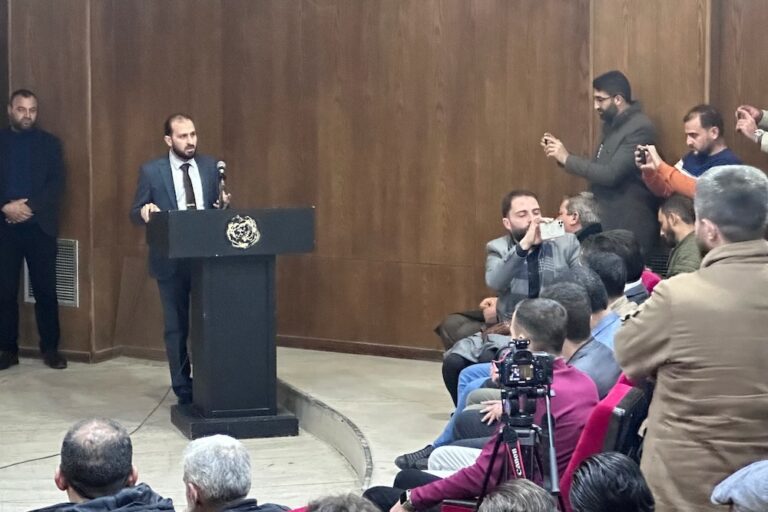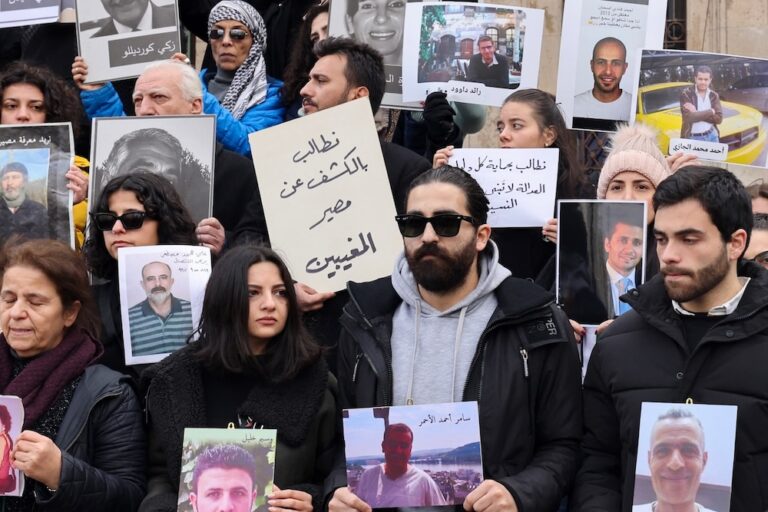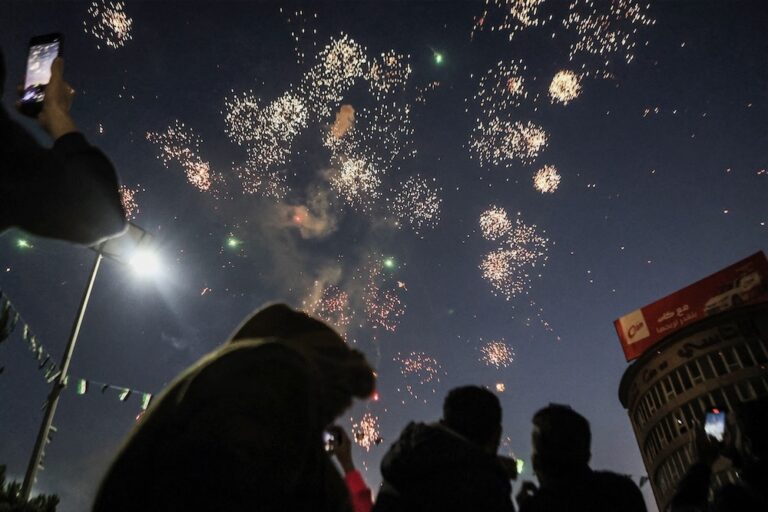Shibal Ibrahim, an online writer and activist from Syria's Kurdish minority who was detained in the country's prisons for more than 20 months, was released in May 2013. Now out of Syria, he talked to PEN International about his experience in detention.
On 22 September 2011, Shibal Ibrahim – an online writer and anti-government activist from Syria’s Kurdish minority whose case was documented by PEN International in its 2012 Case List – was arrested for his involvement in the peaceful protest movement in Qamishli, in North Eastern Syria.
His family knew nothing about him for the next 20 months – he was the victim of an enforced disappearance. During his detention, Shibal was held in various locations including the Air Force Intelligence branch in Qamishli, the Air Force Intelligence branch in al-Mezzeh district of Damascus and finally the infamous Saydnaya prison about 20 miles from Damascus.
Shibal was released following a general amnesty in May 2013. Now out of Syria, he talked to PEN International about his experience in detention.
As a writer, activist and one of the founders of the peaceful Kurdish Youth Union in Qamishli, Shibal Ibrahim knew he might face the risk of being arrested by the government, but he could not predict the ordeal he would go through.
“I knew I was wanted, and I knew I may be arrested but I never imagined I would be kidnapped the way I was. I was on my way to meet a contact who claimed to be an army defector; little did I know that this man was leading me into a trap. I was grabbed and pushed into the back of a car straight from the streets, the next thing I knew I was in the Air Force Intelligence branch in Qamishli.”
When popular anti-government protests first broke out across Syria in early 2011, the Kurdish Youth Union was formed in the Qamishli district in al-Hasakah governorate. The aim of the movement was to organise and coordinate peaceful protests, initially calling for reform, but eventually for the overthrow of the Syrian government. According to Shibal, his involvement in the movement was the focus of the interrogator’s questions following his arrest.
“They wanted information on the other activists who were working with me and they wanted me to confess that certain people were supporting me financially. They even gave me instructions on what to say during the ‘confession’. I refused because none of it was true.
They forced me to open my emails and my Facebook account, luckily the guys back in Qamishli had changed the passwords for me. That was part of our plan, if one of us got arrested, the others had to change all of his passwords, in order to avoid others being targeted and arrested.”
Like many detainees arrested in connection to the wave of unrest that was spreading fast across the country, Shibal told PEN International that he was subjected to torture and other ill-treatment.
“I was tortured in every physical and emotional way possible. Most of the time I was made to stand naked. I had water thrown at me and then I was electrocuted. During interrogations of course, my hands were bound and my eyes were covered. Sometimes the pain from the torture was so bad that I would lose consciousness for a while.
As well as the physical torture, I was constantly insulted; they swore and humiliated us all. More than once they would insult me as a Kurd, they would tell me ‘you Kurds are foreigners, why are you causing problems for us, you are lucky we let you in our country, you all came from Turkey, you all just want your own country’. On top of that, I had to live with the continuous sounds of screaming, very loud screams of pain from other prisoners that were unbearable to hear.”
On 5 September 2012, Shibal Ibrahim was taken from his cell in Saydnaya prison and brought before two men in civilian clothing at an unknown location. There he was subjected to a hearing, which lasted only several minutes, during which one of the men in civilian clothing told Shibal that he was accused of ‘protesting against the Syrian government’. No other information was provided and no lawyer was present.
Following his release, Shibal Ibrahim found out that he had been charged for ‘inciting terrorist acts’, and sentenced to 15 years’ imprisonment. It later became clear that the man who had addressed him during the hearing was in fact a military judge, and the hearing had taken place in one of the Anti-Terrorism Courts, established in July 2012, and often used to persecute peaceful activists under the veil of counter terrorism and national security charges.
Shibal Ibrahim was released as part of a presidential amnesty, issued a month earlier in April 2013. Syrian State TV announced that that the amnesty was to apply to all crimes committed before 16 April 2013, although some activists within the opposition criticised the decree for not applying to the majority of political prisoners.
“There were around 19 men in my cell. On 27 May 2013 a security guard walked in and read out my name, he then said, “You are being released”. At that point I was completely convinced that I was being taken to be executed, and in that moment I remembered my whole life, my kids, my family. They took me to shave my head, and as I walked with the guard he kept on telling me to keep my head down and not look up, I honestly thought I was going to die. Then they handed my belongings back and let me out. Until now I can’t believe it, it still feels like a dream. I can’t believe I am alive.”
Following his release, Shibal spent two days in Damascus before managing to get a plane back to Qamishli where he was greeted with a hero’s welcome. He told PEN International that he was overwhelmed when he learned about the work that activists in Syria, and organisations like PEN International had carried out to campaign for him.
“The phone calls I received in the first few days of my release from people who had been working on my case, as well as family and friends, made me forget the torture I went through. I knew people wouldn’t forget me, but I had no idea about how many people would actually work for me, and stand in solidarity with me, not just in Syria or Qamishli, but all over the world. I couldn’t believe it. It gave me so much energy to think about it. I sincerely thank every individual and organisation that campaigned for me.”
As the conflict in Syria has become increasingly militarised and volatile, many peaceful activists and writers like Shibal found themselves facing new challenges restricting their freedom of expression. Many were forced to flee Syria and join the refugee communities in one of Syria’s neighbouring countries. For Shibal, however, his experience in detention has worked only to affirm his belief that peaceful activism will play a significant part in Syria’s future.
“I still hope and dream that the peaceful activists and the peaceful opposition movement, from all over Syria, will play their role and will be key in the changes to come. Things changed drastically of course when the revolution became armed. The government encouraged people to take up arms, because it benefits the government in the long run in undermining peaceful opposing ideologies- but I hope the peaceful movement is still alive.
I am now out of Syria, but I will carry on with my activities and will try to assist my colleagues inside Syria as much as I can. After I was released we formed the National Organisation for Kurdish Youth, a new platform for all activists across the country to be brought back into the political equation, and to lead political changes. After I was released and I witnessed the amount of work that peaceful activists around the world, as well as in Syria, have done for me, I was further convinced that they are the future and that they are the key to peace in Syria. I hope to be part of that.”


